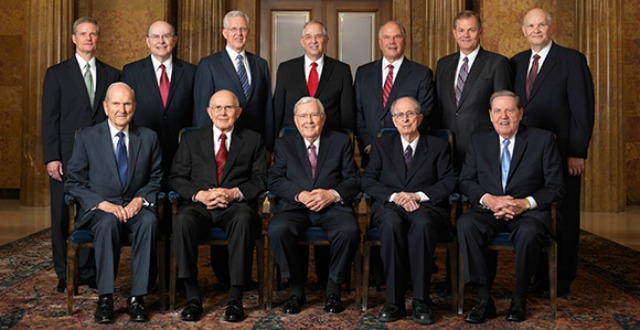Question
Gramps,
“There is no true Latter‑day Saint who would not rather bury a son or a daughter than to have him or her lose his or her chastity ‑‑ realizing that chastity is of more value than anything else in all the world.” Heber J. Grant, Prophet Heber J. Grant, Gospel Standards, p. 55
Is this still a position held by the church, parents would rather bury a child, then help them find their way back through repentence?
Abbie
Answer
Dear Abbie,
I believe you have misinterpreted what Pres. Grant was teaching. He did not say, “It is better that parents watch a fornicating child die and bury him or her than that they help that child repent.” President Grant said (in effect), not that death is better than repentance, but that death is better than sin. Immorality is a very serious sin, but yes, it can be repented of.
Here are a few quotes from modern-day leaders on this topic:
Pres. Uchtdorf:
Satan, “the father of all lies” (2 Nephi 2:18), “the father of contention” (3 Nephi 11:29), “the author of all sin” (Helaman 6:30), and the “enemy unto God” (Moroni 7:12), uses the forces of evil to convince us that this concept applies whenever we have sinned. The scriptures call him the “accuser” because he wants us to feel that we are beyond forgiveness (see Revelation 12:10). Satan wants us to think that when we have sinned we have gone past a “point of no return”—that it is too late to change our course. In our beautiful but also troubled world, it is a sad reality that this attitude is the source of great sorrow, grief, and distress to families, marriages, and individual lives.
Satan tries to counterfeit the work of God, and by doing this he may deceive many. To make us lose hope, feel miserable like himself, and believe that we are beyond forgiveness, Satan might even misuse words from the scriptures that emphasize the justice of God, in order to imply that there is no mercy.
Elder Bednar:
Some of you who receive this message need to repent of sexual or other sins. The Savior is often referred to as the Great Physician, and this title has both symbolic and literal significance. All of us have experienced the pain associated with a physical injury or wound. When we are in pain, we typically seek relief and are grateful for the medication and treatments that help to alleviate our suffering. Consider sin as a spiritual wound that causes guilt or, as described by Alma to his son Corianton, “remorse of conscience” (Alma 42:18). Guilt is to our spirit what pain is to our body—a warning of danger and a protection from additional damage. From the Atonement of the Savior flows the soothing salve that can heal our spiritual wounds and remove guilt. However, this salve can only be applied through the principles of faith in the Lord Jesus Christ, repentance, and consistent obedience. The results of sincere repentance are peace of conscience, comfort, and spiritual healing and renewal.
Your bishop or branch president is the spiritual physician’s assistant who is authorized to help you repent and heal. Please remember, however, that the extent and intensity of your repentance must match the nature and severity of your sins—especially for Latter-day Saints who are under sacred covenant. Serious spiritual wounds require sustained treatment and time to heal completely and fully.
Pres. Kimball:
Serious as is the sin of fornication (sexual intercourse by the unmarried), there is forgiveness upon condition of total repentance. But first one must come to a realization of the seriousness of his sin. Since the beginning there has been in the world a wide range of sins. Many of them involve harm to others, but every sin is against ourselves and God, for sins limit our progress, curtail our development, and estrange us from good people, good influences, and from our Lord.
The quote from Pres. Grant can also be troublesome to victims of sexual assault and abuse, because they tend to blame themselves and feel tremendous shame. To them, Elder Richard G. Scott says:
I solemnly testify that when another’s acts of violence, perversion, or incest hurt you terribly, against your will, you are not responsible and you must not feel guilty. You may be left scarred by abuse, but those scars need not be permanent. In the eternal plan, in the Lord’s timetable, those injuries can be made right as you do your part.
Healing the Tragic Scars of Abuse
I will close with one of my favorite scriptures Isaiah 1:18 . . . saith the Lord” though your sins be as scarlet, they shall be as white as snow; thought they be red like crimson, they shall be as wool.
Gramps







